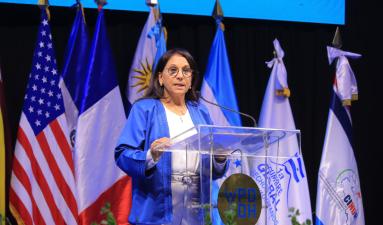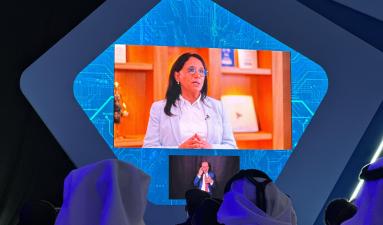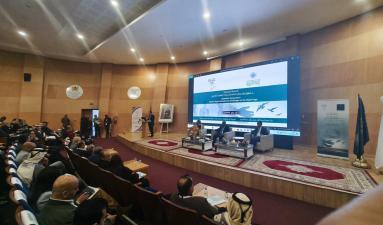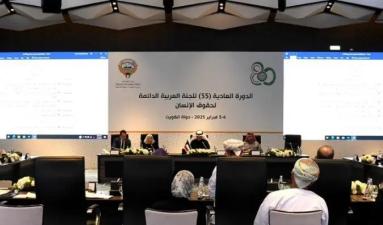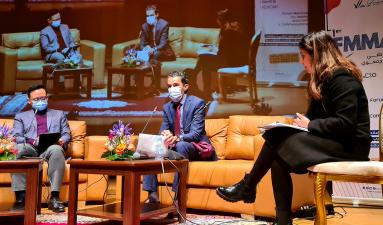«L’espace numérique contribue de manière significative à l’élargissement de la liberté d’expression et à l’émergence de nouvelles formes d’expressions publiques, s’érigeant en outil d’évaluation des politiques publiques et de renforcement de la participation démocratique ». Les propos sont ceux de Mme Amina Bouayach, présidente du Conseil national des droits de l’Homme (CNDH), qui a participé à la journée d'étude sur “Les droits de l'Homme au Maroc et les défis des problèmes émergents” organisée le 18 décembre 2024 à Rabat.
Dans une allocution prononcée en son nom par M. Mohamed El Hachimi, directeur des études au CNDH, Mme Bouayach a indiqué que le CNDH, dans le cadre de ses orientations stratégiques adoptée en 2019, a accordé une attention particulière aux questions émergentes inhérentes aux mutations rapides à l’échelle internationale.
Dans ce contexte, elle a souligné que l’orientation prônée par le CNDH résulte de sa prise de conscience de l’impact profond de ces évolutions sur le système des droits de l’Homme et de leurs répercussions directes sur les pratiques des droits et libertés. Elle a ajouté à cet égard que le CNDH a veillé à faire la distinction entre les questions traditionnelles liées aux demandes d’accès aux droits fondamentaux, et les problématiques émergentes imposées par les évolutions mondiales actuelles, et les menaces qu'ils font peser sur la pratique des droits et des libertés ». Dans cette perspective, le CNDH a accordé un intérêt particulier à un ensemble de questions impliquant des enjeux juridiques et éthiques inédits, et nécessitant des approches innovantes et globales pour garantir la protection et le renforcement des droits dans des contextes nationaux et internationaux en constante évolution.
S’exprimant sur les droits de l'Homme et la bioéthique, Mme Bouayach a indiqué que le CNDH s’est penché sur les défis que pose cette question. « Un domaine où les volets scientifiques, éthiques et juridiques se croisent, en particulier à la lumière du développement de la recherche biomédicale et des technologies médicales modernes » a-t-elle souligné. A cet égard, elle a appelé à la création d’une commission nationale indépendante pluridisciplinaire chargée d'évaluer les questions liées aux recherches biomédicales et de formuler des recommandations les concernant.
Par ailleurs, Mme Bouayach a insisté sur la nécessité d’une révision du cadre législatif actuel pour faire face aux nouvelles problématiques, telles que le don d'organes, l'euthanasie, et la lutte contre le trafic d'organes humains. Ces sujets sensibles, a-t-elle noté, requièrent une prise de conscience au niveau de la société et l’ouverture d’un large débat public, de manière à garantir la préservation de la dignité humaine et le respect des principes de la bioéthique conformément aux normes internationales.
Dans le même contexte, Mme Bouayach a appelé à la mise en place d’un cadre juridique national régissant l'utilisation de l'intelligence artificielle selon une approche fondée sur les droits de l'Homme, particulièrement dans les secteurs sensibles tels que la santé et l’enseignement. Elle a également souligné la nécessité d'anticiper les risques liés à certaines applications numériques et leur impact négatif, notamment sur les enfants et les personnes vulnérables, tout en veillant à créer un équilibre entre le progrès technologique et les exigences de la protection des droits et libertés fondamentales.

